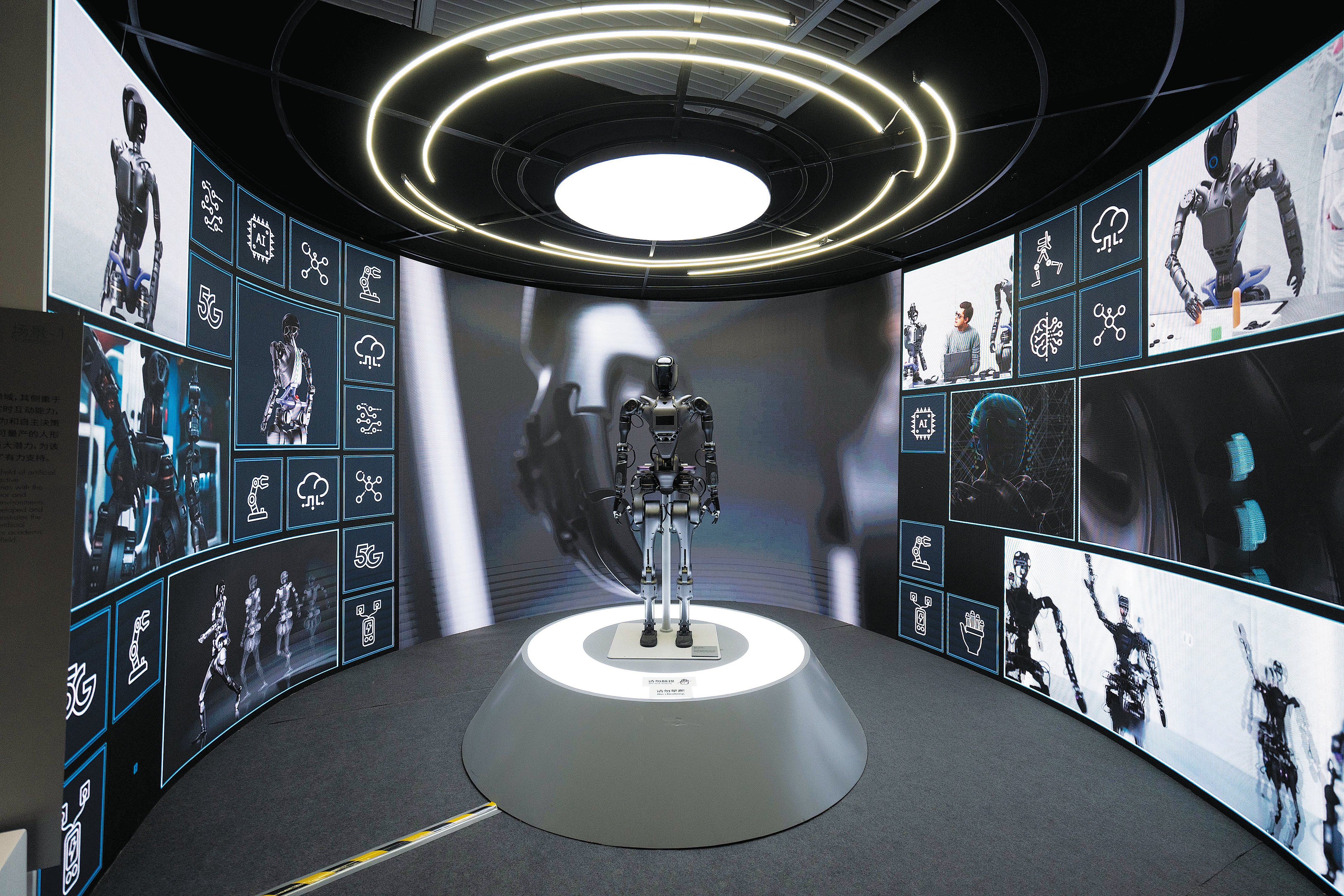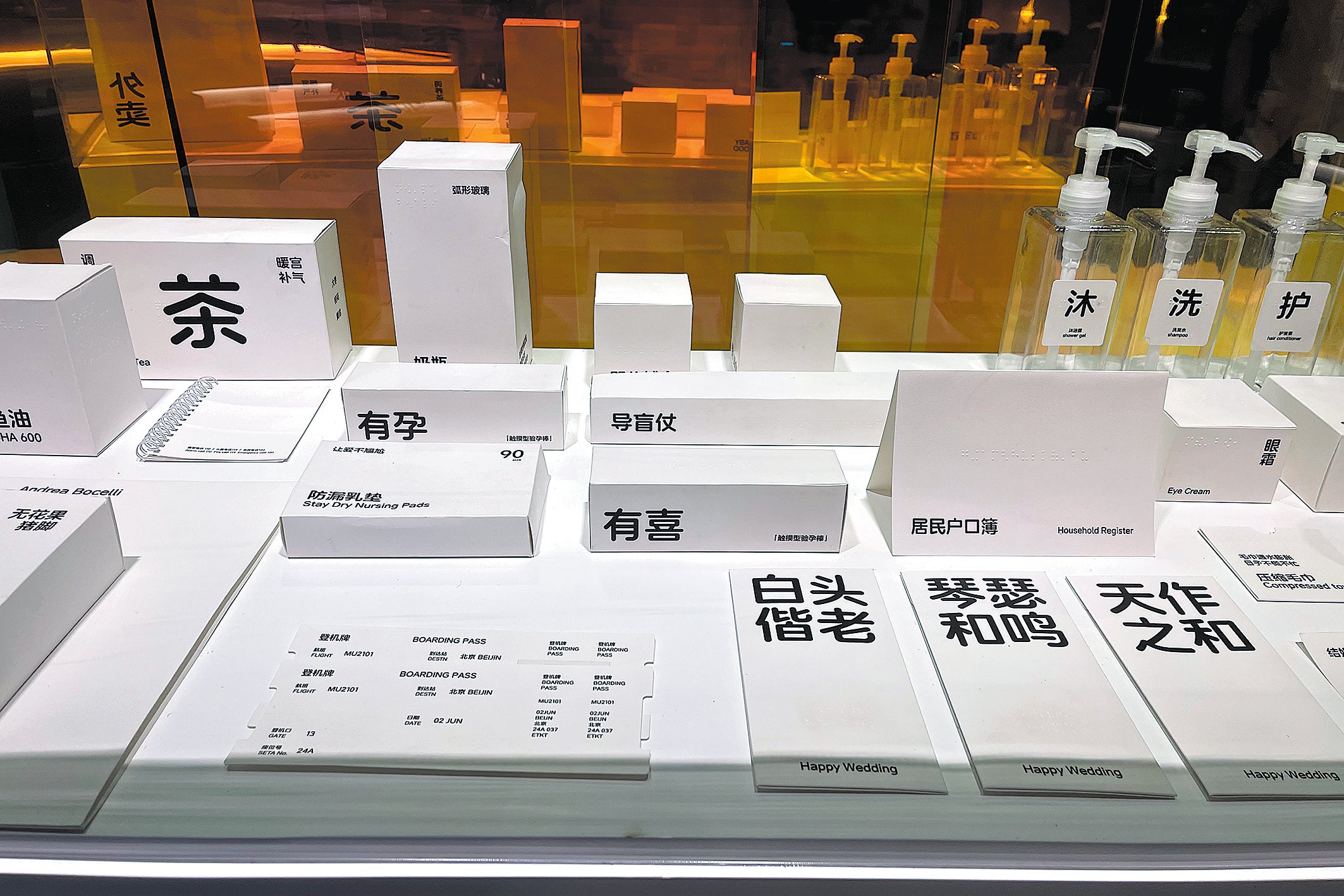Innovation translates into making life easier
THE ARTICLES ON THESE PAGES ARE PRODUCED BY CHINA DAILY, WHICH TAKES SOLE RESPONSIBILITY FOR THE CONTENTS

Recollecting his experience on a jury at the Cannes Lions International Festival of Creativity in Cannes, France, in June, Li Chao finds it difficult not to share the groundbreaking ideas he came across at the event. He hails the award-winning works, yet feels regretful for those not awarded but presenting equally in innovative spirit and humanitarian issues.
The annual festival and awards are a get-together for those from the advertising and communication industries. Li and his team won a Bronze Cannes Lions award last year for their Alibaba Healthy Fonts Project.
The project is a pinyin-based keyboard input method automatically translating pinyin text into braille.
“It is free, and accessible to everyone. All you need to do is download the font and install it,” says Li, a designer and the marketing and branding vice-president of Alibaba and Ant Group Macao Pass Group who initiated the development of the font in 2022.
He says the first thought was to make it easy for, and encourage, pharmaceutical companies to add braille on medication packaging to guarantee the safe use of medications for people with visual impairments.
Li says the launch of the font garnered acclaim from teachers at the schools for visually impaired children who, with the help of the font, could add learning materials and books used at ordinary schools into their curriculum.

In December, the font won a gold award at the eighth annual Design Intelligence Awards presented by the China Academy of Art in Hangzhou, Zhejiang province.
Launched in 2014, the award aims at inspiring new technology inventions and applications, products and solutions that address humanistic concerns and make life smarter. The first DIA prizes were given in 2016.
A selection of the DIA award winners, including the Alibaba Healthy Fonts Project, is on show at Gather Great Wisdom to Shape the Future of Intelligence Manufacturing held at the National Museum of China until mid-August.
The exhibition aims to raise public awareness of the role of industrial design in the improvement of the economy, social issues and environmental protection, and to gather more ideas for the country’s high-quality development. The exhibition is also a notice to those interested in applying to participate in the ninth DIA. The award ceremony will be held in December.
Li’s booth spotlights the font project at the exhibition and shows how it can benefit the many needs of those with vision impairments. Packages are on display of a dozen objects necessary in daily life featuring braille, such as food delivery, hygiene products, hotel vouchers and cleaning kits, and more.
“Developing the font is not technologically complicated. The packaging on display is made of white paper because we want to tell people that design doesn’t have to be always eye-catching, it can be simple but important, useful and careful when it addresses the basic needs of certain disabled groups,” Li says.
“To serve the various needs of people with a humanistic approach” has been an orientation of design, Li noticed at Cannes.
It is also the commitment of the Design Intelligence Award, according to Gao Shiming, president of the China Academy of Art.
“In the decade following its launch, the award has been people-centred and oriented, advocating for kindness in design,” he says.
He says the award has built connections with thousands of designers, designer groups and manufacturers around the world whose work has formed a foundation of ideas and powerful sources of creativity to promote the upgrading of industries in the digital economy and intensified integration of AI. Gao says they also inspire solutions for emerging social issues, such as public health, ecological restoration and the care of the elderly community.
“We always believe that design is for the people,” Gao says. “The responsibility of designers is to create new life aesthetics in the digital age and the time of artificial intelligence.”
